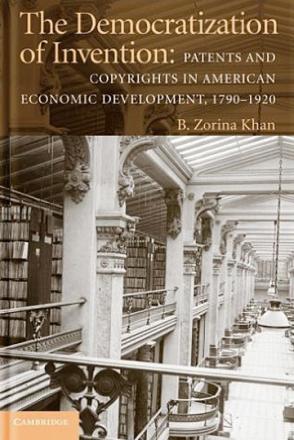The Democratization of Invention: Patents and Copyrights in American Economic Development, 1790–1920

This book examines the evolution and impact of American intellectual property rights during the "long nineteenth century." The American experience is compared to Britain and France, countries whose institutions reflected their oligarchic origins. Instead, US patent and copyright institutions were carefully calibrated to "promote the general welfare." The United States created the first modern patent system, and its politics were the most liberal in the world toward inventors. When markets expanded, these inventors contributed to the proliferation of new technologies and improvements, many of which proved to be valuable both in economic and technical terms. Individuals who did not have the resources to directly exploit their inventions benefited disproportionately from the operation of efficient markets that allowed them to specialize and sell off their rights. The accumulation of such incremental efforts helped to propel the United States to the forefront of all other industrial nations. In contrast to its leadership in the area of patents, the US copyright regime was among the weakest in the world, and it profited from international copyright piracy for a century. American patent and copyright institutions not only furthered economic and technological progress but also provided a conduit for the creativity and achievements of disadvantaged groups.


